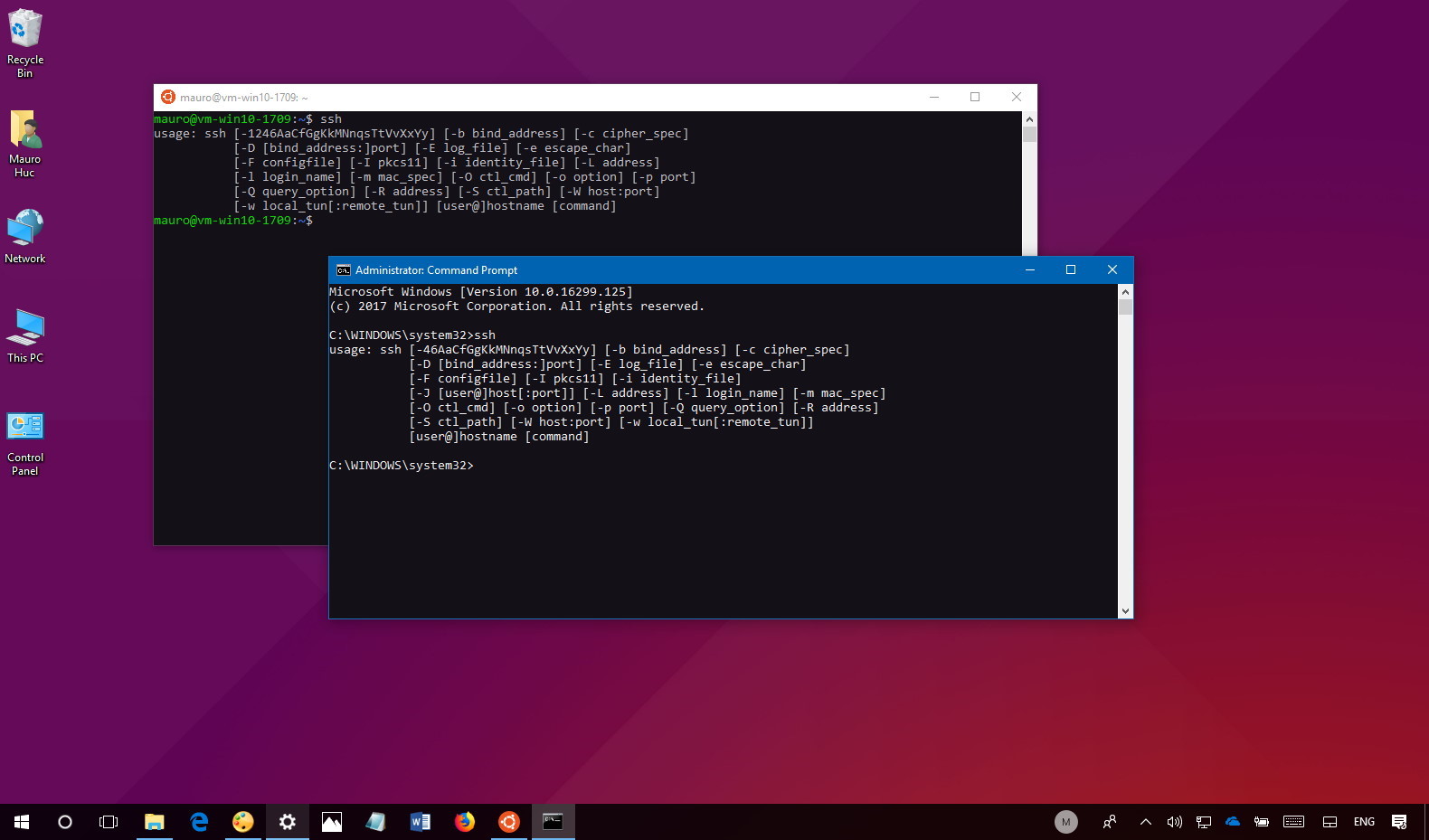- SSH (Secure Shell) You can access the command line of a Raspberry Pi remotely from another computer or device on the same network using SSH. The Raspberry Pi will act as a remote device: you can connect to it using a client on another machine.
- About the original question: change the shell opened by a SSH session, I don't think that it is configurable. You can change the shell used by the user on the system (chsh, or edit /etc/passwd), or even change the default shell of the machine, but not the SSH shell (I think SSH just opens a regular session with the user's parameters, including shell configuration).
- KiTTY, ZOC Terminal, and OpenSSH are probably your best bets out of the 26 options considered. 'Includes additional features over PuTTy' is the primary reason people pick KiTTY over the competition. This page is powered by a knowledgeable community that helps you make an informed decision.
Price: KiTTY is free to use. KiTTY is an SSH client that is based on PuTTY’s 0.71 version. This SSH connection is set up with an option that enables TCP port forwarding from a port on the external server to an SSH port on a server in the internal network. Setting up this SSH back-tunnel requires a single one-line command on the inside, and it can easily be automated.
-->This topic covers the Windows-specific configuration for OpenSSH Server (sshd).
OpenSSH maintains detailed documentation for configuration options online at OpenSSH.com, which is not duplicated in this documentation set.
Configuring the default shell for OpenSSH in Windows
The default command shell provides the experience a user sees when connecting to the server using SSH.The initial default Windows is the Windows Command shell (cmd.exe).Windows also includes PowerShell and Bash, and third party command shells are also available for Windows and may be configured as the default shell for a server.
To set the default command shell, first confirm that the OpenSSH installation folder is on the system path.For Windows, the default installation folder is SystemDrive:WindowsDirectorySystem32openssh.The following commands shows the current path setting, and add the default OpenSSH installation folder to it.
| Command shell | Command to use |
|---|---|
| Command | path |
| PowerShell | $env:path |
Configuring the default ssh shell is done in the Windows registry by adding the full path to the shell executable to ComputerHKEY_LOCAL_MACHINESOFTWAREOpenSSH in the string value DefaultShell.
As an example, the following Powershell command sets the default shell to be PowerShell.exe:
Windows Configurations in sshd_config
In Windows, sshd reads configuration data from %programdata%sshsshd_config by default, or a different configuration file may be specified by launching sshd.exe with the -f parameter.If the file is absent, sshd generates one with the default configuration when the service is started.
The elements listed below provide Windows-specific configuration possible through entries in sshd_config.There are other configuration settings possible in that are not listed here, as they are covered in detail in the online Win32 OpenSSH documentation.
AllowGroups, AllowUsers, DenyGroups, DenyUsers
Controlling which users and groups can connect to the server is done using the AllowGroups, AllowUsers, DenyGroups and DenyUsers directives.The allow/deny directives are processed in the following order: DenyUsers, AllowUsers, DenyGroups, and finally AllowGroups.All account names must be specified in lower case.See PATTERNS in ssh_config for more information on patterns for wildcards.
When configuring user/group based rules with a domain user or group, use the following format: user?domain*.Windows allows multiple of formats for specifying domain principals, but many conflict with standard Linux patterns.For that reason, * is added to cover FQDNs.Also, this approach uses '?', instead of @, to avoid conflicts with the username@host format.
Work group users/groups and internet-connected accounts are always resolved to their local account name (no domain part, similar to standard Unix names).Domain users and groups are strictly resolved to NameSamCompatible format - domain_short_nameuser_name.All user/group based configuration rules need to adhere to this format.
Examples for domain users and groups
Examples for local users and groups
AuthenticationMethods
For Windows OpenSSH, the only available authentication methods are 'password' and 'publickey'.
Ssh Shell For Mac

AuthorizedKeysFile
The default is '.ssh/authorized_keys .ssh/authorized_keys2'. If the path is not absolute, it is taken relative to user's home directory (or profile image path). Ex. c:usersuser. Note that if the user belongs to the administrator group, %programdata%/ssh/administrators_authorized_keys is used instead.
ChrootDirectory (Support added in v7.7.0.0)
This directive is only supported with sftp sessions. A remote session into cmd.exe wouldn't honor this. To setup a sftp-only chroot server, set ForceCommand to internal-sftp. You may also set up scp with chroot, by implementing a custom shell that would only allow scp and sftp.
HostKey
The defaults are %programdata%/ssh/ssh_host_ecdsa_key, %programdata%/ssh/ssh_host_ed25519_key, %programdata%/ssh/ssh_host_dsa_key, and %programdata%/ssh/ssh_host_rsa_key. If the defaults are not present, sshd automatically generates these on a service start.
Match
Note that pattern rules in this section. User and group names should be in lower case.
PermitRootLogin
Not applicable in Windows. To prevent administrator login, use Administrators with DenyGroups directive.
SyslogFacility
Ssh Shell For Windows
If you need file based logging, use LOCAL0. Logs are generated under %programdata%sshlogs.For any other value, including the default value, AUTH directs logging to ETW. For more info, see Logging Facilities in Windows.
Ssh Shells
Not supported
The following configuration options are not available in the OpenSSH version that ships in Windows Server 2019 and Windows 10 1809:
- AcceptEnv
- AllowStreamLocalForwarding
- AuthorizedKeysCommand
- AuthorizedKeysCommandUser
- AuthorizedPrincipalsCommand
- AuthorizedPrincipalsCommandUser
- Compression
- ExposeAuthInfo
- GSSAPIAuthentication
- GSSAPICleanupCredentials
- GSSAPIStrictAcceptorCheck
- HostbasedAcceptedKeyTypes
- HostbasedAuthentication
- HostbasedUsesNameFromPacketOnly
- IgnoreRhosts
- IgnoreUserKnownHosts
- KbdInteractiveAuthentication
- KerberosAuthentication
- KerberosGetAFSToken
- KerberosOrLocalPasswd
- KerberosTicketCleanup
- PermitTunnel
- PermitUserEnvironment
- PermitUserRC
- PidFile
- PrintLastLog
- RDomain
- StreamLocalBindMask
- StreamLocalBindUnlink
- StrictModes
- X11DisplayOffset
- X11Forwarding
- X11UseLocalhost
- XAuthLocation
